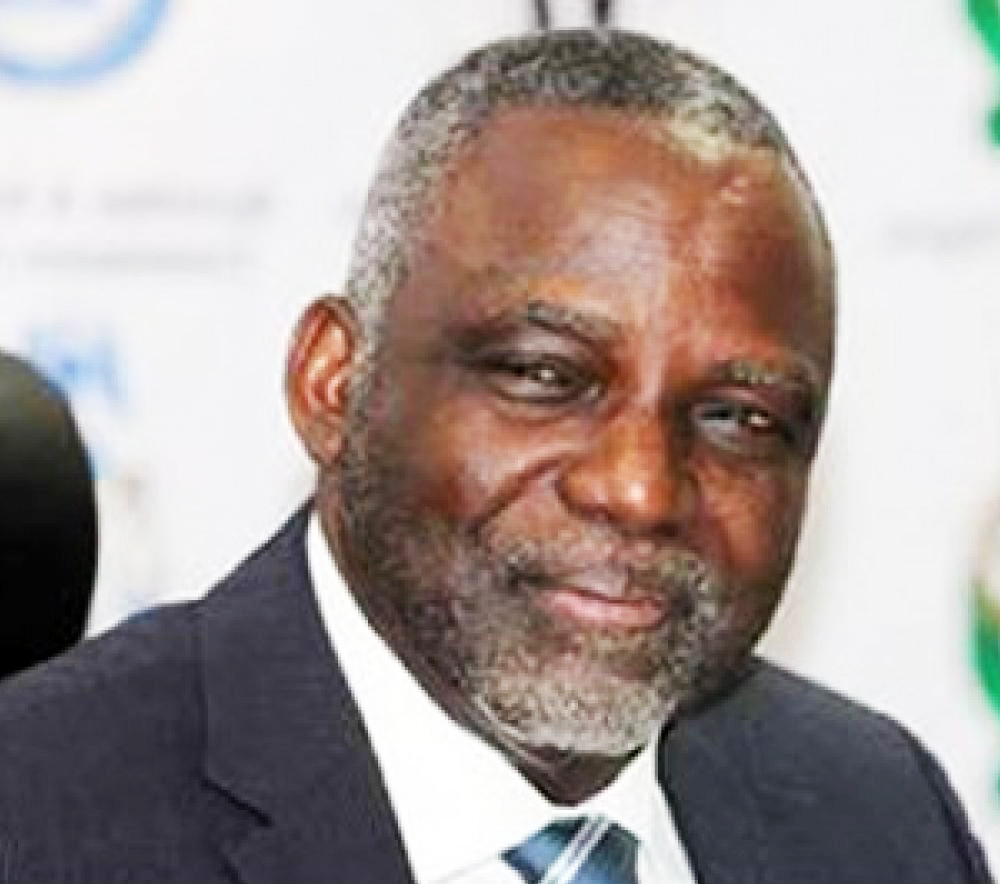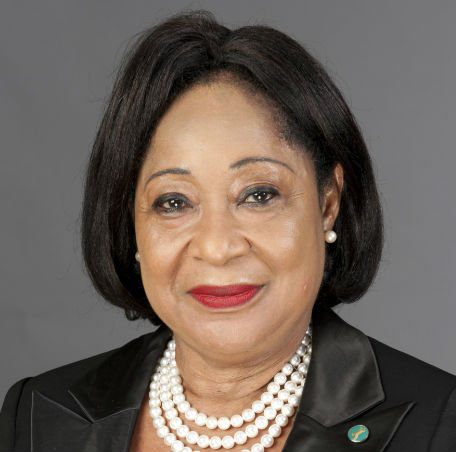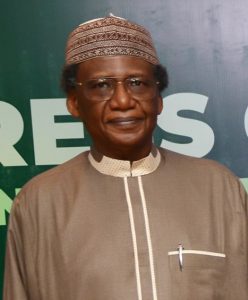Administration
Administration
Implementation of The Nigeria Prize for Science
The overall prize implementation is the responsibility of the Advisory Board, supported by the secretariat which is located within NLNG. They are responsible for:
- Overall governance and administration of the prize.
- Appointment and supervision of judges and the adjudication process.
- Approval of the outcome of the adjudication process.
Profile of Members of Advisory Board
Prof. Bart O Nnaji FAS, FA Eng. CON, NNOM
 Prof Bath Nnaji is one of the greatest gifts to Nigeria and one of the world’s leading professors of Robotics. He has been Director of the US National Science Foundation Centre for e-Design, University of Pittsburgh; Kepler Whitford Professor of Engineering and Alcoa Foundation Professor of Engineering, both at the University of Pittsburgh. Prof Nnaji was also a Professor of Mechanical and Industrial Engineering at the University of Massachusetts, USA.
Prof Bath Nnaji is one of the greatest gifts to Nigeria and one of the world’s leading professors of Robotics. He has been Director of the US National Science Foundation Centre for e-Design, University of Pittsburgh; Kepler Whitford Professor of Engineering and Alcoa Foundation Professor of Engineering, both at the University of Pittsburgh. Prof Nnaji was also a Professor of Mechanical and Industrial Engineering at the University of Massachusetts, USA.
He was the former Nigerian Minister of Science & Technology and Minister of Power, a former member of the Presidential Advisory Council, Special Adviser to the President on Power and former Chairman of the Presidential Task Force on Power. He was also the former President of the Independent Power Producers Association of Nigeria and the Founder and Director of Geometric Power Limited, the first independent power project in Eastern Nigeria. Shortly after joining the University of Massachusetts’s Faculty of Engineering, he became the founder and Director of the Automation and Robotics Laboratory at the university. He rose to Professor of Mechanical and Industrial Engineering in 1992.
Prof Nnaji is a Fellow of the Nigerian Academy of Science and holds national honours of Commander of Order of the Niger (CON), in addition to numerous other titles and awards from different parts of the world. He is currently the Chairman of the Advisory Board of The Nigeria Prize for Science.
Chief (Dr) Mrs Nike Akande (OON, CON)
 Chief Dr Mrs Nike Akande (OON, CON) is an economist, accountant and industrialist who have served Nigeria twice as the first female Minister of Industries. She was also the immediate past Chairman of the Lagos Chamber of Industries, Mines and Agriculture (LCCIMA) and the first woman to occupy that position. Chief Akande has several awards to her credit including the African Federation of Women Entrepreneur Award in Adis Ababa in 1998; Officer of Order of Niger (OON) and Commander of Order of the Niger in 2014. She holds the traditional title of Ekerin Iyalode of Ibadanland. Dr Akande is a member of the Advisory Board of The Nigeria Prize for Science.
Chief Dr Mrs Nike Akande (OON, CON) is an economist, accountant and industrialist who have served Nigeria twice as the first female Minister of Industries. She was also the immediate past Chairman of the Lagos Chamber of Industries, Mines and Agriculture (LCCIMA) and the first woman to occupy that position. Chief Akande has several awards to her credit including the African Federation of Women Entrepreneur Award in Adis Ababa in 1998; Officer of Order of Niger (OON) and Commander of Order of the Niger in 2014. She holds the traditional title of Ekerin Iyalode of Ibadanland. Dr Akande is a member of the Advisory Board of The Nigeria Prize for Science.
Prof. Yusuf Abubakar
 Professor Yusuf Abubakar is a distinguished figure known for his expertise in Quantitative Genetics and Animal Breeding. He currently serves as Visiting Professor and Chairman of the University Research Council at the University of Abuja since February 2017.
Professor Yusuf Abubakar is a distinguished figure known for his expertise in Quantitative Genetics and Animal Breeding. He currently serves as Visiting Professor and Chairman of the University Research Council at the University of Abuja since February 2017.
His contributions to research and innovation have been recognized, as evidenced by his receipt of the HLF Role Model Award of Excellence. Professor Abubakar’s career highlights include extensive work in academia, administration, and scientific research, making significant strides in advancing agricultural knowledge and food security initiatives.
He is the Coordinator of Agriculture Group, R & D Standing Committee, at the Tertiary Education Trust Fund. He is also the President of the Nigerian Institute of Animal Science (NIAS), Chair of the Board of Trustees, WorldFish, and currently a visiting professor at the University of Abuja. He was a judge in the 2021 cycle of The Nigeria Prize for Science.
Responsibilities of The Advisory Board
The board shall meet at least four times per annum on the Prize. These meetings can be physical or virtual. The roles of the board include to:
- Appoint judges, including the international consultant, for annual adjudication process for The Nigeria Prize for Literature.
- Provide general steer on the requirements for submission and adjudication process for the judges.
- Provide general guidance to judges on winning entry if there is a stalemate.
- Participate in the award ceremony for winners of the Prizes.
- Review and approve call for entries.
- Handover received entries to judges and approve judges’ adjudication guidelines.
- Approve assessment criteria for each genre.
- Announce, with the support of the judges and NLNG, the winner of the Prize.
Panel of Judges
This is a committee of judges set up by the Advisory Board to review and adjudicate entries submitted for The Nigeria Prize for Literature. Members of the panel shall be selected by the Advisory Board to reflect the geo-ethnic balance of Nigeria. Their tenure is annual. The Nigeria Prize for Literature shall have three Nigerian judges and one international judge.
Appointment
- The judge(s) must be experts, adjudged to be sufficiently versed in the genre under consideration for the particular year.
- A judge shall be nominated by the Advisory Board but shall be formally appointed with a letter signed by NLNG Management. Such appointment can only become effective when the appointee acknowledges such letter and accepts the appointment in writing.
- The judges must be persons of impeccable character.
- The person(s) will be required to have a personal laptop which can be used for online meetings via Skype, Microsoft Teams, etc.
- The person(s) must have basic Internet and computer skills to ensure they can navigate online platforms easily for the purpose of reports and online meetings.
- The person(s) must be able to dedicate considerable time to the Prize in the year, be willing to travel for the purpose of the Prize and be in considerably good health to undertake such travels.
Roles and Responsibilities
Duties of the judges shall include:
- Develop and agree on the assessment criteria, to be approved by the Advisory Board, for adjudication of the Prize.
Read the entries and evaluate objectively to provide the long- and shortlists. - Submit reports of evaluation on agreed deadlines to the secretariat which submits same to the Advisory Board.
Ensure that adjudication is transparent, free and fair. - Align judgement with report of international consultant and Advisory Board and agree on winner(s)/no winner where necessary.
- Prepare reports for the announcement of winners using the works on the shortlist of three.
Prepare a detailed report of adjudication and submit to the secretariat at the end of the cycle.
